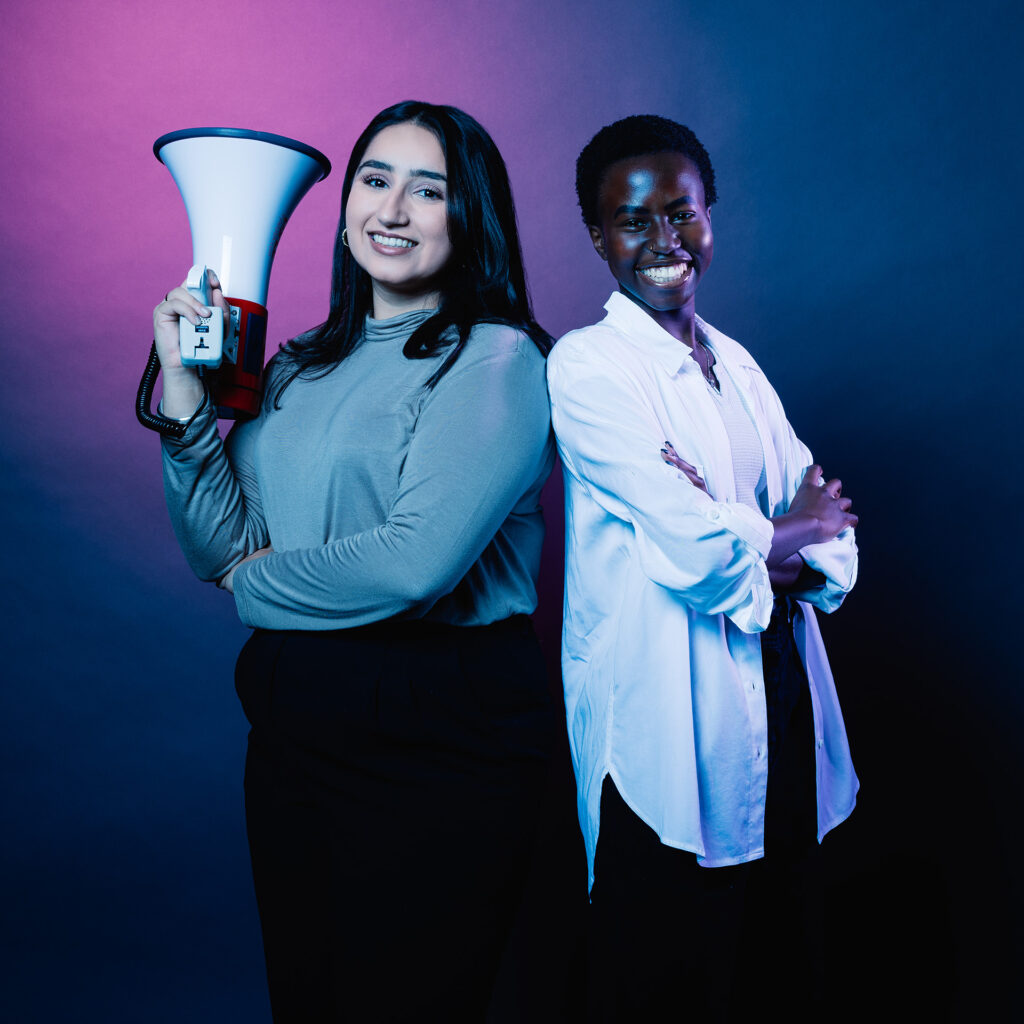December 13, 2022
Social Stride counters online hate with education and supports
A safe online space, free from hate and discrimination. That is the vision of Gurpreet Kaur Bolina and Deanne Vuzi. In 2020, they brought that vision to the John Humphrey Centre for Peace and Human Rights (JHC) and began piloting the Social Stride initiative.
Through advocacy and education, Social Stride addresses the increasing issue of online hate by countering misinformation, capturing best practices to respond to hate and discrimination, supporting victims, providing workshops and creating responsive digital literacy campaigns. One of Social Stride’s key focuses is the team of volunteers, called Incident Reporters, who monitor social media platforms for harmful content.
“The Incident Reporter volunteers are like [Social Stride’s] eyes,” says Bolina. “They report the harms they witness in virtual spaces.”
The incident reports are captured in a form developed by Social Stride’s research team. The forms are analyzed to understand hateful tendencies, to determine content for educational material and to understand behaviours. The hope is that this information will be used to inform future policy development.
While Social Stride started as a youth-focused initiative, the team has expanded its scope. Social Stride’s digital literacy campaigns, which educate on topics ranging from developing critical media skills to myth busting, have been geared towards people of all ages.
“We see the necessity of bringing digital literacy to parents and teachers,” says Vuzi. “As someone who grew up in the early era of social media, I can’t really blame my parents for not knowing how to teach me to interact with online hate and misinformation. But starting those conversations is very important. We need a way to guide youth into a healthier online environment and let them express their identities.”

To further its cause, Social Stride offers workshops on addressing hate, mental health and digital literacy. It also organizes national gatherings.
“We do need to think about how to better sustain Social Stride,” says Renée Vaugeois, Executive Director of JHC. “Once we decide to launch a project, it’s a big commitment.”
Recognizing its important contribution to helping shift the discourse in virtual space, Edmonton Community Foundation (ECF) provided JHC with an $80,000 grant to equip youth, teachers and agencies with increased capacity to identify and address online hate, discrimination and dis-misinformation.
Vaugeois understands that Social Stride can only thrive on continual engagement. The more resources they collect, the more capacity the team has.
“Mental health and wellness takes a lot to maintain, especially when the team often encounters online hate and harms,” says Vaugeois. “As much as we’d like to provide education and guidance for our community, we also need long-term, stable support from organizations like the ECF to help us set things in the right place.”
Social Stride relies on volunteer support as the initiative looks to expand its reach across Canada. Volunteers looking to engage with the initiative are welcome to join the network of community members who want to address hate and discrimination online.
This article comes from the Winter 2022 edition of Legacy in Action. Read the full issue.